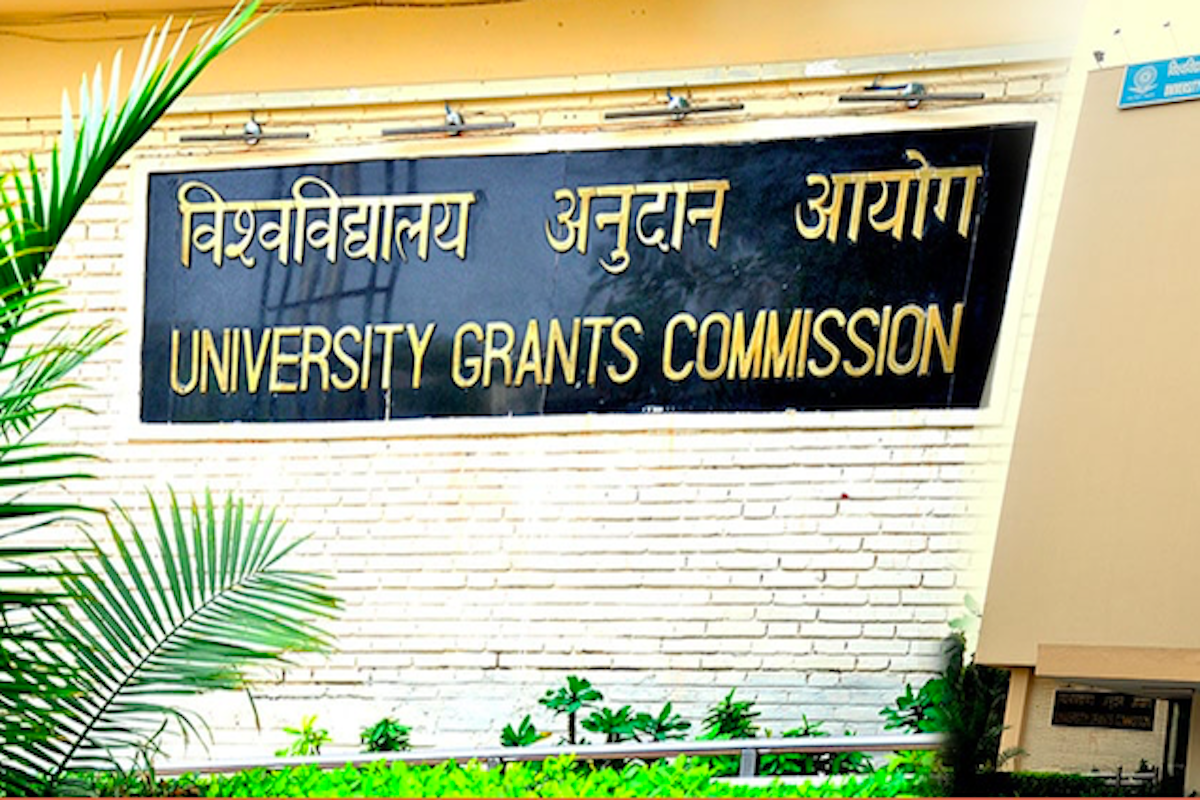IIMC gets deemed university status
The step has been taken following an advice given to this effect to the Ministry of Education by the University Grants Commission (UGC).
An autonomous college will be required to maintain the required grade of NAAC or NBA as per the eligibility condition for autonomy.

Representation image (Photo: UGC website)
Colleges in India will now enjoy an autonomous status as a new draft regulation in this regard has been approved by the University Grants Commission (UGC). The UGC is expected to make it public in a few days for stakeholder’s feedback. After the autonomy, there will be no or just a few nominees of the UGC and universities in the high level committees of the colleges.
Also, there will be less interference in the functioning of the colleges. The regulations will be finalised after receiving feedback from the stakeholders. UGC chairman Prof M Jagadeesh Kumar said the autonomous college may prescribe their own admission rules, evolve methods of assessment, conduct of examinations and notification of result, promote research in relevant fields etc. “We will finalize this regulation after receiving feedback from the stakeholders,” he said.
Prof Kumar said that autonomous status would be granted initially for a period of 10 years and a further extension for five years would be done. A college which has functioned as an autonomous college for 15 consecutive years will be considered as autonomous college on a permanent basis.
Advertisement
However, such a permanent autonomous college is required to maintain the required grade of NAAC/NBA, etc., as per the eligibility condition for autonomy, and inform the same to the Parent University.
According to the guidelines made by the UGC, a college fulfilling the eligibility as per these regulations, intending to become autonomous will submit the application on UGC portal anytime during the year. The College will submit the proposal to the Parent/Affiliating University which may forward the same to the UGC within 30 days of the receipt of proposal.
The University will examine the application of the college for autonomous status on UGC portal and give its recommendations along with reasons and justification, within 30 days on UGC portal. If the University does not respond on UGC portal within 30 days, it will be presumed that the University has no objection to the processing of the application by the UGC for conferment of autonomous status.
A Standing Committee of UGC will examine the application of the College for conferment of autonomous status. The approval/rejection letters may be issued on the basis of the decision of the Standing Committee. The decisions may be ratified by the Commission subsequently.
An autonomous College can merge with another autonomous college(s)/institution(s) run by the same Parent Body of the Autonomous Colleges, with the prior approval of the Parent University/Universities.
Automatic extension of autonomous status will be granted if the college is having NAAC minimum ‘A’ Grade or the NBA accreditation for at least three programmes with a minimum score of 675.
In case, Autonomous College fails to obtain NAAC with minimum ‘A’ Grade or NBA accreditation for at least three programmes with a minimum score of 675, the autonomy to such college stands automatically withdrawn and no fresh admissions will be done under autonomy mode after withdrawal of autonomous status.
As per the current provision, a University nominee is a must in a college’s Finance Committee. But after the fresh changes and autonomy no University nominee will be required in the Finance Committee of a college.
Prof Kumar said: “The higher education in the country is going through a major transformation with the advent of National Education Policy (NEP), 2020. UGC has reviewed the existing regulations to align them with the recommendations of NEP, 2020 with the help of an Expert Committee and the draft regulation was approved by the Commission in its last meeting held on September 22,”
“These regulations provide freedom to the autonomous colleges to determine and prescribe their own courses of study and syllabi, and restructure and redesign the courses to suit local needs, make it skill oriented and in consonance with the job requirements,” he said.
Advertisement